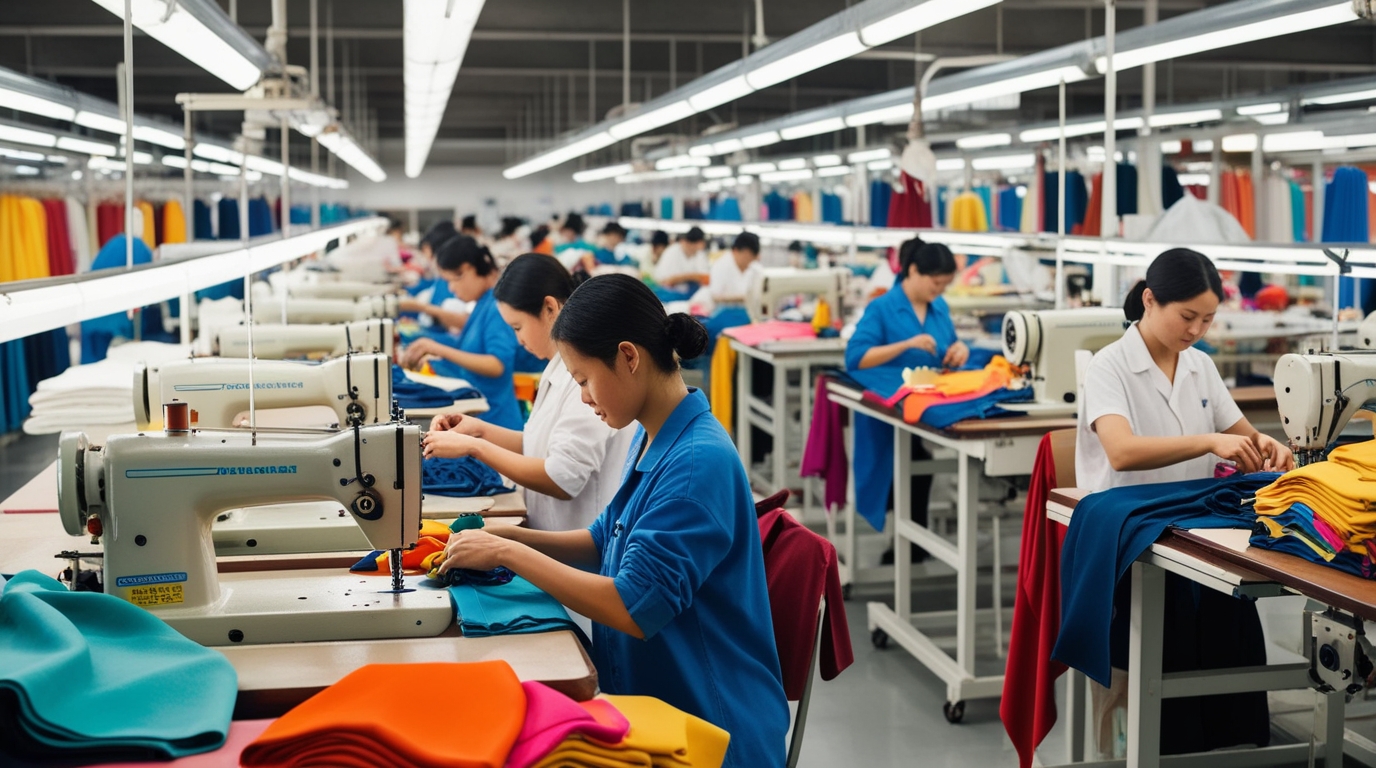The question of whether it is ethical to buy clothes made in Bangladesh is one that invites discussions about sustainability, workers' rights, global trade, and economic development. Bangladesh has long been a hub for garment manufacturing, providing affordable clothing to many of the world's biggest brands. However, the industry has faced scrutiny over labor conditions, wages, and environmental impact. So, is it okay to buy clothes made in Bangladesh? Let’s break down the key factors involved.
As consumers, our choices matter. Shopping consciously, researching brands, and advocating for ethical practices allow us to contribute to a more just and sustainable fashion industry.
1. The Economic Importance of the Garment Industry in Bangladesh
The garment industry is the backbone of Bangladesh’s economy. In fact, it contributes around 80% of the country’s total export earnings. It also employs over 4 million people, most of whom are women. For many, working in garment factories is the only available livelihood option. By purchasing clothes made in Bangladesh, consumers directly support this critical sector. The income generated from garment exports helps millions of families meet their basic needs, such as food, shelter, and education. Therefore, boycotting clothes from Bangladesh might inadvertently harm the workers whose livelihoods depend on this industry.2. Labor Rights and Working Conditions
While the garment sector provides much-needed jobs, it has also been criticized for poor working conditions. The 2013 Rana Plaza disaster, where a factory building collapsed, killing more than 1,100 workers, brought international attention to the unsafe environments in which many Bangladeshi workers operate. In the aftermath, reforms were introduced, and many factories have improved their safety standards. However, challenges remain. Workers often face long hours, low wages, and limited rights to unionize. Efforts by international organizations, brands, and local governments continue, but the pace of change can be slow. To address these concerns, conscious consumers can look for certifications such as Fair Trade, Ethical Trade Initiative (ETI), or brands that are transparent about their supply chains. These steps help ensure that the clothes you purchase were made under ethical conditions.3. Environmental Concerns
Bangladesh is also a significant player in fast fashion, a model that encourages mass production of cheap clothing at the expense of the environment. Fast fashion is notorious for wastefulness, contributing to pollution through excessive water use, toxic dyes, and fabric waste. Many factories in Bangladesh are also not equipped with proper waste management systems, which exacerbates environmental damage. On the flip side, the government and some brands have begun focusing on sustainable production methods. Bangladesh has become home to some of the world’s most eco-friendly garment factories, and more companies are being pushed to adopt sustainable practices. As consumers, you can choose brands that prioritize environmental responsibility and use sustainable materials.4. Globalization and Ethical Consumerism
Buying clothes made in Bangladesh ties into the larger debate on globalization. On one hand, globalization has allowed developing countries like Bangladesh to become part of the global economy, create jobs, and reduce poverty. On the other hand, it has also led to the exploitation of cheap labor. As a consumer, your purchasing decisions can influence how brands behave. By choosing to buy from ethical, responsible companies that pay fair wages and maintain good working conditions, you are sending a message to the industry. Brands are more likely to improve their practices if they know that their customers care about these issues.5. How to Make Ethical Choices
If you’re concerned about buying clothes made in Bangladesh, here are a few steps to ensure that your purchases align with your values:- Research the Brands: Many brands provide information about their supply chain and their efforts to ensure ethical working conditions. Support companies that are transparent about where their clothes are made and how they treat their workers.
- Look for Certifications: Certifications like Fair Trade and GOTS (Global Organic Textile Standard) indicate that a brand adheres to ethical labor and environmental standards.
- Prioritize Sustainability: Support brands that use sustainable materials and minimize their environmental impact. Many companies are starting to produce collections made from recycled or organic fabrics.
- Support Local Artisans and Fair-Trade Initiatives: Consider buying from local or small-scale producers who adhere to fair trade principles, as this directly benefits the workers.
Conclusion: A Balanced Approach
In conclusion, it is okay to buy clothes made in Bangladesh as long as you do so with an awareness of the issues involved and make ethical purchasing decisions. The garment industry in Bangladesh plays a crucial role in the country’s economy and provides jobs for millions of people, particularly women. However, the industry still faces challenges related to labor rights and environmental sustainability. By supporting brands that are committed to improving conditions for workers and protecting the environment, you can help drive positive change. Ethical consumerism and increased accountability are key to ensuring that the clothes we buy benefit both the people who make them and the planet.As consumers, our choices matter. Shopping consciously, researching brands, and advocating for ethical practices allow us to contribute to a more just and sustainable fashion industry.
